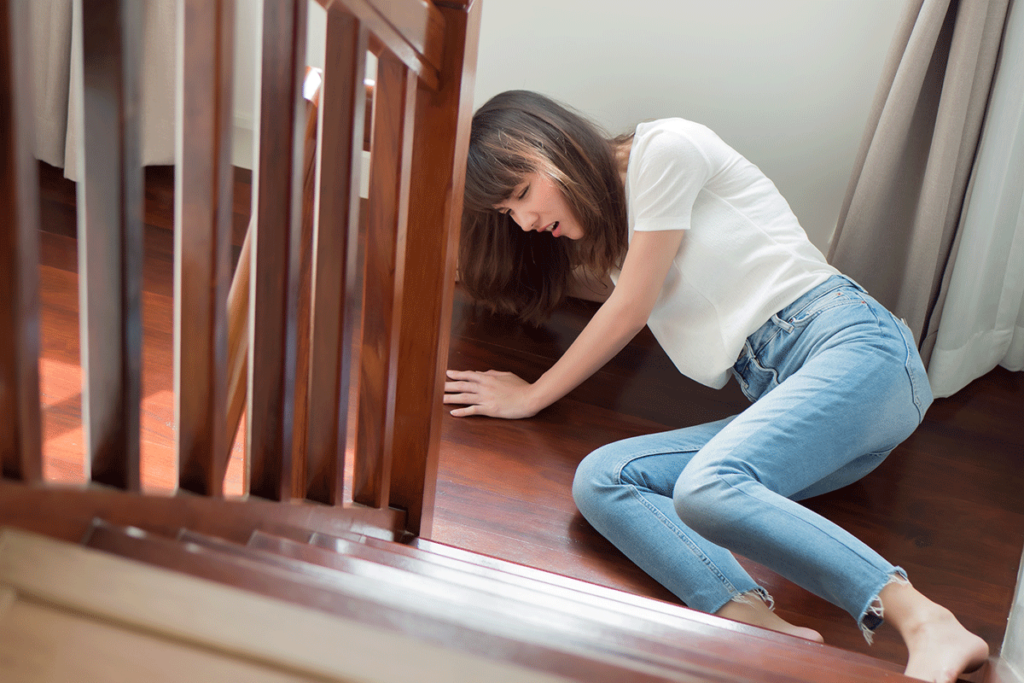The majority of people know that alcohol can affect balance, along with speech and coordination. In fact, the most common alcohol-related injuries are falls, but why is that the case? At Promises, we offer treatment options to help you understand alcohol dependence and addiction better. Get started by calling us at 844.875.5609.
How Alcohol Impacts the Brain
Alcohol is a depressant substance, meaning it slows down your central nervous system. It interferes with your brain’s communication pathways by impacting brain chemicals, such as the inhibitory neurotransmitter GABA and glutamate, an excitatory neurotransmitter that stimulates brain cells.
By impacting GABA and glutamate, alcohol causes a decrease in brain activity as well as in the nerves in the spinal cord. This sedative effect on your central nervous system doesn’t just make you drowsy. It also impacts your:
- Breathing
- Gag reflex
- Thinking
Alcohol also affects your brain’s frontal lobe, which is responsible for cognition, judgment, memory, and thought. Falls and alcohol are common because the substance also affects your cerebellum, a part of your brain responsible for balance and movement.
You may have trouble walking when you have a few drinks. You may also have trouble gauging distance, coordinating hand gestures, or regulating the speed at which you move. All of these issues arise because alcohol has affected the cerebellum. After long-term abuse of alcohol, this damage can be permanent.
Falls and Alcohol: The Potential Consequences
The risk of falling grows with each alcoholic drink you have. Not only are you more likely to fall if you drink excessively, but you are also more likely to suffer worse injuries than someone who falls while not intoxicated. You may be unable to catch yourself or protect your head because of alcohol’s effects on your nervous system.
Those with mild intoxication are more likely to receive soft tissue injuries, while those with higher levels of alcohol in their blood are more prone to experiencing bone fractures and head injuries, according to the Emergency Medicine Journal.
Alcohol and falling are linked in people of all age groups, although older people tend to have an increased risk.
Managing Alcohol Use Disorders
If you have developed an alcohol use disorder, deciding you want to get sober is not enough. You need support and a team of experts to help you manage the various stages of recovery.
The first stage is the detoxification process. This is perhaps one of the most complex stages of the procedure because of the physical and mental strain it places on you. Alcohol detoxification can lead to powerful and even life-threatening withdrawal symptoms, so turning to medical detox services is crucial.
Once you’ve removed alcohol from your body, you can start focusing on the underlying cause of your addiction. That means participating in individual and group therapy sessions, where you can learn how to manage stress, deal with any co-occurring mental health concerns, understand your triggers, and create a relapse prevention plan.
You can choose from inpatient treatment options if you want to be immersed in the process, or you can opt for outpatient services. These allow you to get the care you need while managing work or family responsibilities.
Get Started with Alcohol Addiction Treatment at Promises
Alcohol and falling are so closely linked that you will likely experience a fall if you have an alcohol use disorder. A fall while intoxicated can be much worse than falling while sober because your reaction time is slowed, potentially resulting in more severe injuries.
For this reason, turning to an alcohol use disorder treatment program is essential. At Promises, we offer various treatment options to help you regain your sobriety. Call Promises today at 844.875.5609 to see how we can help.

